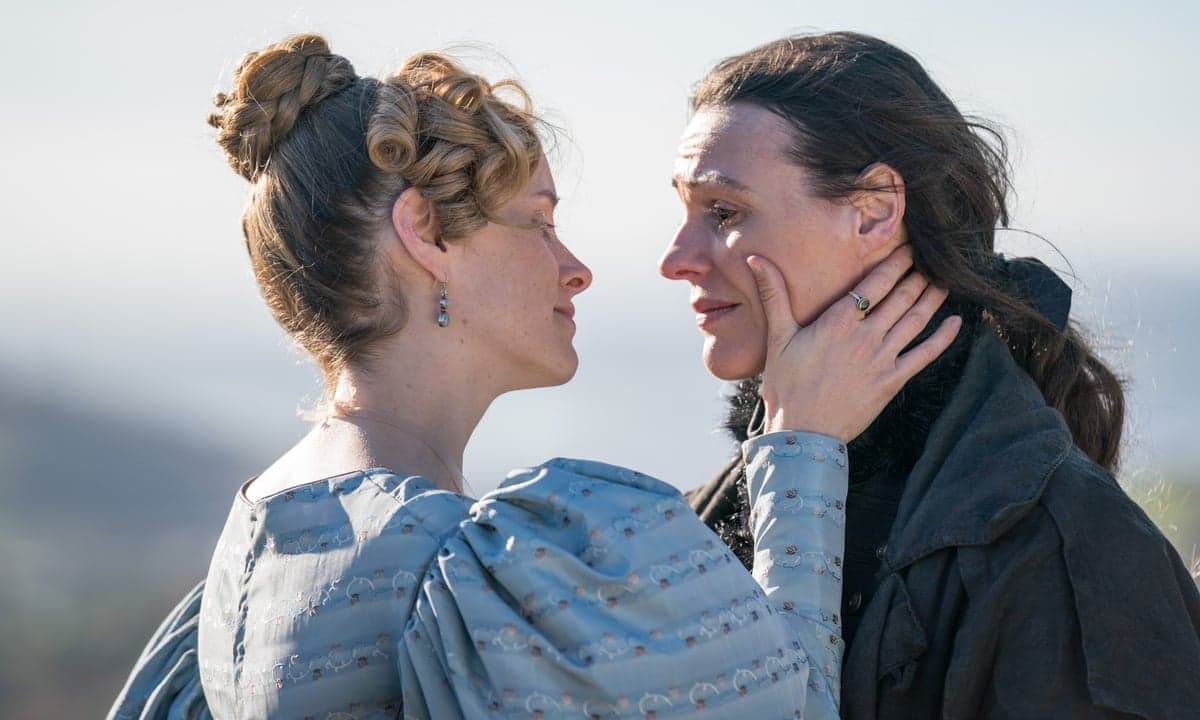What Do Intimacy Coordinators Do, Anyway?
What do Normal People, I May Destroy You and Sex Education all have in common? When it comes to plot, nothing much, but they’re each renowned for can’t-look-away sex scenes which see intimate moments play out in explicit, exquisite detail. Whether it be Michaela Coel’s taboo-breaking depiction of period sex (complete with blood clot) or Aimee Lou Wood’s joyful on-screen celebration of female masturbation, these much overdue programmes are changing how pop culture represents desire in the best possible way.
On each of these projects, Intimacy Coordinator Ita O’Brien is working to free female and queer sexuality from the male gaze behind the scenes. Starting out as a dancer and actor, she moved into directing and would ultimately use her expertise to craft the Intimacy On Set Guidelines, a code of conduct aimed at keeping actors and their right to say “no” safe in a post-Weinstein world. Stepping onto set, she makes these good intentions a reality by ensuring that actors’ boundaries are seen and heard whilst sex scenes are being shot. But ultimately, a big part of her work is also about making these scenes hotter than ever because, after all, there’s nothing sexier than consent.
Below, we catch up with her to talk about her unconventional professional journey, working alongside Michaela Coel’s “bravery and genius”, and her advice to aspiring Intimacy Coordinators.
What was your journey towards becoming an Intimacy Coordinator?
I had no intention of creating Intimacy Guidelines or becoming an Intimacy Coordinator! I worked as a musical theatre dancer for ten years and then trained at Bristol Vic as an actor, going on to work as an actor for another ten years. Then I studied an MA in Movement Studies and went on to put on a play of my own in 2009. It was a piece looking at how abuse functions in our society, and I was looking at how to keep my actors safe when exploring this kind of subject matter. Out of that basically came my Intimacy Guidelines.
And what happened from there?
Well, a colleague at Wimbledon College of Art asked me to come teach what I was developing so I did that and honed the guidelines over the years. I was starting to share them with the industry from the beginning of 2017 and then Weinstein happened in October. From there, I was really ready to promote my guidelines as a way to work professionally with a process and structure that allows us to shoot intimate content well. Working on Sex Education was the first time I was asked to put it all into process on set, it was a bit of a baptism of fire.
How do your Intimacy Guidelines and your on-set work fit into a post-Weinstein world?
The industry knew that sexual misconduct was going on and tolerated it, but the MeToo and Time’s Up movements were very much a watershed. The industry creating codes of conduct was a sign that people were no longer going to have to work in fear of harassment or abuse. Naturally, that raised questions about how to film intimate content and I was just there to say that these scenes are like fight or dance scenes. Similar to Stunt Coordinators, Intimacy Coordinators are needed to bring skills, techniques, clear choreography and consent when it comes to touch and nudity. Prior to 2017, the sense was that “well everybody has sex so it’s not something you need a practitioner to teach”. But, in reality, when it’s personal and private bodies at play, actors’ needs have to be taken care of.

That’s a really interesting analogy between Stunt Coordinators and Intimacy Coordinators. Kind of on that note, what’s the nuts and bolts actual process of coordinating and implementing a scene, is it like planning a stunt or choreographing a dance scene?
Much like being a Stunt Coordinator, you read the script, talk to the director and find out what they want and then speak to the actors to work out what their concerns are. On the day on set, you have to make sure there’s time for rehearsal. This is a particularly vital step because in the past they haven’t made time to rehearse intimate scenes like they do stunt scenes. Then you have to make sure that the Intimacy Guidelines are in place and that all touch is agreed, making sure that the whole structure and choreography of the scene is known. After that stage, you check back in with the actors and once this process is done through it’s just like any other scene.
What’s the most rewarding thing about the career you’ve carved for yourself?
The response to programmes like Normal People, Gentleman Jack and I May Destroy You with the audience going “this is just amazing”. And the response from my actors when I check in with them and they say that they’ve had a brilliant day on set and feel both empowered and respected.
How do Intimacy Guidelines and Intimacy Coordinators make the process better for actors?
Through the role and narrative of the guidelines, we’re saying that we want to know actors’ “no” and that their “no” is a gift. That’s the opposite to what the industry was saying before, where if an actor ever said “no” they’d be considered a troublemaker or a diva and would seriously be in fear of their job or of not being booked on another job. We’re inviting open communication about what their boundaries are and through the role of the intimacy coordinator — who is there to make sure that everybody’s personal boundaries are listened to, heard and accommodated — they’re able to communicate these things.
Above all, the guidelines and coordinators just remind the industry that intimate scenes are acting. Previously the attitude was; “well if we want this to look sexy, actors will really have to have chemistry.” Actors were keen encouraged to go out for dinner together if they were shooting a sex scene the next day. There used to be a real confusion with who an actor was personally and who they were professionally and an attitude of just throwing people in front of a camera and expecting them to get on with it.

And of course, more people-centred and consent-driven approaches to these scenes lead to better intimate content! One example of your work that comes to mind is I May Destroy You, particularly the depiction of period sex!
Yay! Have you seen anything like it before?
To be honest, I don’t think I ever have…
The detail in that scene was not mine, it was all Michaela [Coel] but I was delighted to be able to facilitate her bravery and genius. As a woman, I’m used to seeing any advert for menstrual products substitute menstrual blood for blue liquid rather than showing blood. It’s only when you have female writers that you’ll see the details around menstruation — cis-male writers just aren’t engaged in the paraphernalia of periods to know these details. When I think about the projects that I’ve worked on that have had a big impact, they’ve all been female writers: Laurie Nunn for Sex Education, Michaela Coel for I May Destroy You, Sally Rooney for Normal People, Sally Wainwright for Gentleman Jack…
The process with these shows sounds really rewarding, but have you worked on any projects where you’ve had any pushback?
A certain amount of the industry has changed but some of them, particularly the older generation, liked it how it was. They liked being cock of the walk and not having to consider anybody else. I’ve worked on some productions that have had me in to do the work but haven’t really wanted to listen or take on board the full process of what the guidelines can give. In these instances, the intimate content has been alright but it hasn’t been great and, interestingly enough, they haven’t spoken about the fact they even used me as an intimacy coordinator.
What’s something you’d like aspiring intimacy coordinators to know?
That they need to undergo very robust training! The concern is that people look at the job and think “I can do that” and then they do a little bit of training — like a weekend workshop — and set themselves up in the industry as intimacy coordinators. That’s concerning, the role needs to be trusted in the industry.
Read more about Ita and what her work on ‘I May Destroy You’, ‘Normal People’ and more via her site.

